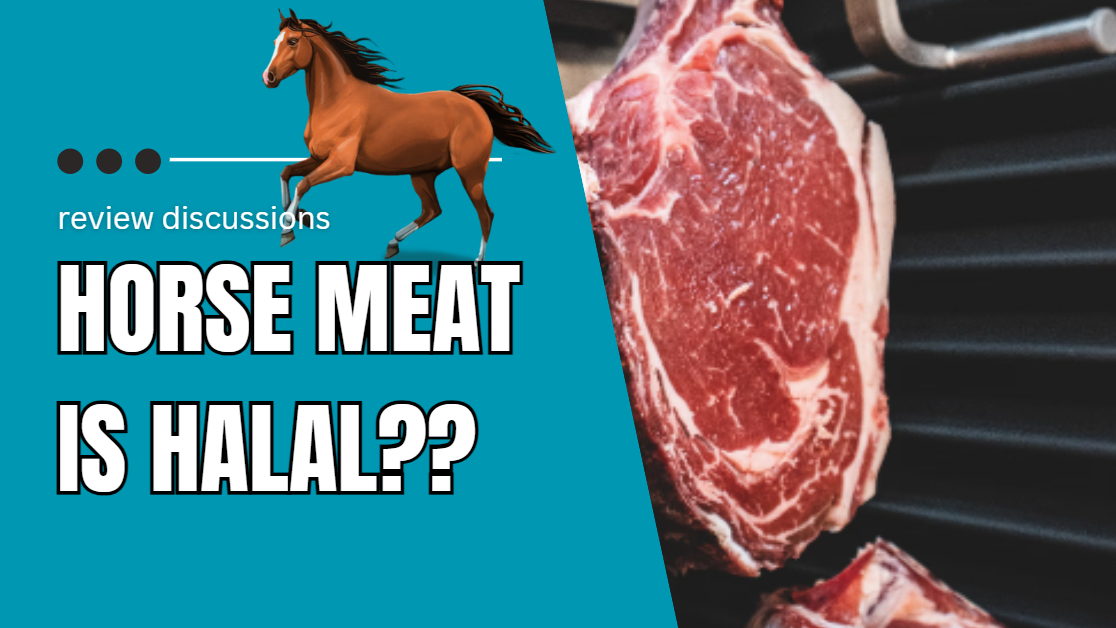Vegan Ethics And The Halal Meat Industry: A Necessary Discussion

Table of Contents
Understanding Vegan Ethics
Core Principles of Veganism
Veganism is a way of living that seeks to exclude, as far as is possible and practicable, all forms of exploitation of, and cruelty to, animals. Its core tenets rest on three pillars:
- Animal Rights: Veganism fundamentally opposes the commodification and exploitation of animals, recognizing their inherent right to life and freedom from suffering. This includes rejecting the use of animals for food, clothing, entertainment, and experimentation.
- Environmental Concerns: The environmental impact of animal agriculture is substantial. Veganism acknowledges the significant contribution of meat production to greenhouse gas emissions, deforestation, and water depletion, advocating for more sustainable food systems.
- Health Considerations: Many vegans also cite health benefits as a motivation, pointing to the potential health risks associated with high meat consumption and the nutritional advantages of a plant-based diet.
Different interpretations of veganism exist, including ethical veganism (focused primarily on animal rights) and environmental veganism (prioritizing ecological sustainability).
The Vegan Argument Against Meat Consumption
The ethical arguments against meat consumption center on the suffering inflicted upon animals within factory farming systems. These include:
- Intensive Farming Practices: Overcrowding, mutilations without anesthesia, and stressful transport conditions are common in factory farming, causing significant animal suffering.
- Environmental Degradation: Meat production is a major contributor to climate change, accounting for a significant portion of global greenhouse gas emissions. The land and water resources required for animal agriculture are immense, leading to deforestation and water scarcity. (Source: FAO, Livestock’s Long Shadow).
- Inefficient Food Production: Producing meat requires significantly more resources (land, water, feed) than producing plant-based protein, making it an environmentally unsustainable food source.
Exploring Halal Meat Practices
The Principles of Halal Slaughter (Zabiha)
Halal meat is meat obtained from animals slaughtered according to Islamic guidelines. The process, known as Zabiha, emphasizes:
- Humane Slaughter: The animal must be slaughtered quickly and efficiently, minimizing pain and suffering. A sharp knife is used to sever the major blood vessels in the neck, ensuring a swift death.
- Proper Invocation: The name of Allah is invoked before the slaughter, emphasizing respect for the animal's life and recognizing God's dominion over creation.
- Specific Methods: The method of slaughter is strictly defined, differentiating Halal from other methods of meat production.
Industry Standards and Practices
While Halal slaughter aims for humane treatment, variations exist across the Halal meat industry globally.
- Regional Differences: Standards and enforcement of Halal practices can differ significantly across various regions and countries.
- Ethical Concerns: Potential ethical concerns include the conditions under which animals are raised before slaughter, transportation methods, and overall welfare standards.
- Certification and Regulation: Many countries have regulatory bodies and certification systems overseeing Halal meat production, but consistency and enforcement vary.
Finding Common Ground and Potential Conflicts
Areas of Overlap
Despite apparent differences, there are potential areas of common ground:
- Minimizing Animal Suffering: Both vegan ethics and Halal principles aim to minimize animal suffering. The ideal Halal slaughter is quick and minimizes pain, aligning with vegan concerns about reducing animal cruelty.
- Collaboration on Welfare Standards: There is potential for collaboration between advocates of both perspectives to improve overall animal welfare standards across the meat industry.
Areas of Conflict and Ethical Dilemmas
Significant ethical dilemmas remain:
- The Inherent Conflict: The core principle of veganism—avoiding animal exploitation—directly conflicts with the consumption of meat, regardless of how it is sourced.
- Justifying Slaughter: Even if Halal slaughter is considered humane, the question of whether humane treatment justifies the killing of animals remains a central point of disagreement.
- Environmental Impact: While Halal slaughter might address some ethical concerns, the environmental impact of meat production remains a considerable challenge, creating conflict with vegan environmental priorities.
Moving Towards a More Sustainable and Ethical Future
Promoting Transparency and Accountability in the Halal Meat Industry
Increased transparency is crucial:
- Improved Traceability: Implementing better traceability systems throughout the Halal meat supply chain would allow consumers to verify the origin and treatment of animals.
- Stricter Regulations: Stronger regulations and enforcement of animal welfare standards within Halal meat production are essential.
The Role of Consumer Awareness and Choice
Informed consumer choices are critical:
- Ethical Consumption: Consumers should research the origins and methods of meat production before purchasing.
- Demand for Ethical Products: Increased demand for ethically sourced food will incentivize the industry to adopt more humane and sustainable practices.
Exploring Plant-Based Alternatives within Halal Dietary Guidelines
The rise of Halal-certified plant-based alternatives offers promising solutions:
- Expanding Options: More Halal-certified plant-based meat substitutes are becoming available, providing ethical alternatives within Islamic dietary guidelines.
- Reducing Meat Consumption: Adopting these alternatives can contribute significantly to reducing overall meat consumption and its associated ethical and environmental impacts.
Conclusion: Vegan Ethics and the Halal Meat Industry: A Continuing Dialogue
This article has explored the complex interplay between vegan ethics and the Halal meat industry. While seemingly opposed, there are areas of potential collaboration focused on improving animal welfare. However, the fundamental conflict between the consumption of meat and the core tenets of veganism persists. Continued dialogue and increased transparency within the Halal meat industry, coupled with growing consumer awareness and the adoption of Halal-certified plant-based alternatives, are crucial for fostering a more sustainable and ethically conscious approach to food consumption. We encourage further research on both vegan ethics and Halal practices, exploring topics such as “Halal vegan options” and “ethical meat consumption,” to continue this important conversation.

Featured Posts
-
 Inferno A Deep Dive Into Earth Series 1 Episode 1
May 13, 2025
Inferno A Deep Dive Into Earth Series 1 Episode 1
May 13, 2025 -
 Atalanta Y Venezia Empatan Sin Goles Cronica Del Partido
May 13, 2025
Atalanta Y Venezia Empatan Sin Goles Cronica Del Partido
May 13, 2025 -
 Partynextdoor And Tory Lanez The Apology And What It Means
May 13, 2025
Partynextdoor And Tory Lanez The Apology And What It Means
May 13, 2025 -
 Preview Elsbeth Season 2 Episode 15 I See Murder
May 13, 2025
Preview Elsbeth Season 2 Episode 15 I See Murder
May 13, 2025 -
 Pochemu Syn Kadyshevoy Ne Platit Alimenty Tayna Pryachetsya Za Mat
May 13, 2025
Pochemu Syn Kadyshevoy Ne Platit Alimenty Tayna Pryachetsya Za Mat
May 13, 2025
